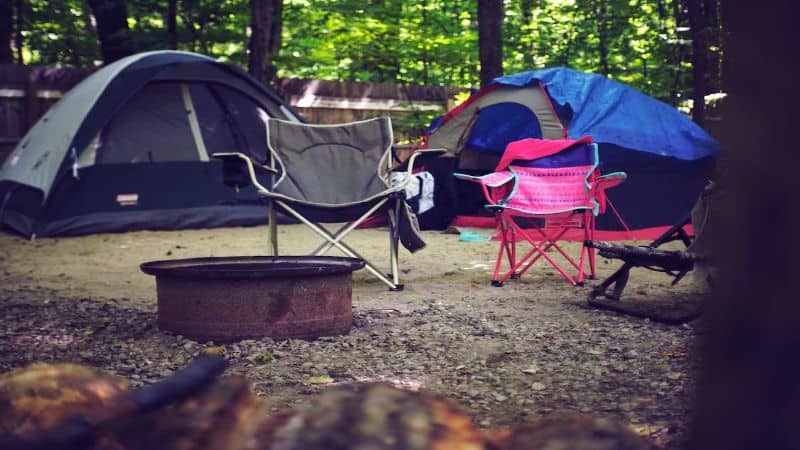Camping is one of my favorite ways to escape the hustle and bustle of everyday life, but it can be a challenge when your partner isn’t on board—especially if they have a serious aversion to bugs. I get it; those little critters can be annoying and even a bit creepy. But with the right approach, you can create a fun and enjoyable camping experience for both of you.
Understanding the Challenge
Camping’s a fantastic getaway for me, but it poses unique challenges when my partner dreads bugs. While I enjoy the great outdoors, their fear of insects can sometimes dampen the experience.
The Fear of Bugs
Fear of bugs often stems from past encounters and discomfort. Some individuals react strongly to the sight of insects, feeling anxious or overwhelmed. Swarming mosquitoes or crawling ants ignite concern, making it tough for them to unwind. Acknowledging this fear is crucial to finding solutions that foster comfort. I focus on understanding and validating my partner’s feelings while exploring ways to mitigate their anxiety.
Impact on Camping Experience
Bugs can significantly impact the camping experience. The presence of insects can lead to discomfort, distraction, or even agitation. If my partner’s constantly swatting away flies or worrying about ticks, it distracts from the natural beauty around us. Anxiety about bugs can prevent enjoyment of outdoor activities like hiking or fishing. By addressing these concerns head-on and using effective strategies, I create a more enjoyable environment for both of us, ensuring the focus remains on our shared love for nature.
Preparing for Your Camping Trip
Preparing for a camping trip requires careful thought, especially when you’re with a partner who’s not fond of bugs. With the right strategies, you can have a fantastic time outdoors.
Choosing the Right Location
Choosing a bug-friendly location can make a world of difference. Look for sites near water sources, like lakes or rivers, as they often have fewer insects. Open, breezy places also help deter bugs. Research campgrounds with amenities such as screened-in shelters or cabins. Many state parks provide areas designed to minimize insect presence. If you’re unsure, scout out reviews online to see if others mention bugs.
Timing Your Trip
Timing your trip impacts bug activity significantly. Plan your outings during cooler months when insects are less active. Late spring or early fall are ideal for reducing encounters with bugs. Early mornings and late evenings tend to be peak times for insects, so aim for daytime hikes and outdoor activities. Checking local weather patterns also helps ensure you avoid peak bug seasons, allowing your partner to enjoy nature without constant complaints.
Essential Gear for Bug-Free Camping
Camping with someone who hates bugs means packing the right gear. Preparation can help create a more enjoyable experience for both of us. Below are essential items that can keep those pesky insects at bay.
Insect-Repellent Clothing
Insect-repellent clothing serves as my first line of defense. I opt for garments treated with permethrin, a compound specifically designed to repel bugs. These clothes come in various styles, from long-sleeve shirts to pants, providing ample coverage. I ensure my partner wears these items too. Lightweight, breathable fabrics make for comfortable wear, especially on warmer days. Brands like Columbia and REI offer solid options in this category.
Bug Protection Tools and Gadgets
Investing in bug protection tools can improve our comfort during the trip. I find portable bug zappers handy; they emit a light that attracts insects, eliminating them quickly. Additionally, I always carry citronella candles to create a bug-free zone around our campsite. For nighttime, I use a battery-operated fan; it keeps the air moving, making it harder for bugs to approach us. I also recommend carrying insect repellent sprays with DEET or picaridin for extra protection. My go-to is a spray with around 20-30% DEET for maximum effectiveness without being overpowering.
These tools and clothing options help transform our camping trips into enjoyable outdoor experiences, focusing on nature instead of those unwanted creepy-crawlies.
Creating a Comfortable Camping Environment
Creating an inviting camping spot requires thoughtful strategies, especially when one partner dislikes bugs. My experiences have taught me how these adjustments can lead to a more pleasant outdoor adventure.
Campsite Setup Tips
- Choose the Right Ground: Select a site with less vegetation and more exposed ground. Open areas tend to attract fewer insects and provide better airflow, which can help deter bugs.
- Set Up a Bug Barrier: Use a camping tarp or netting to create a physical barrier around the tent. This not only offers extra protection but also enhances privacy.
- Elevate the Tent: Position the tent on elevated ground if possible. Insects tend to gravitate towards low-lying areas, so staying higher can reduce encounters.
- Utilize Natural Repellents: Surround your setup with plants like marigolds or lavender, known for their bug-repelling properties. These can naturally deter pests while adding to the site’s aesthetic.
- Create a Chill Zone: Use battery-operated fans inside the tent. The airflow can keep bugs at bay and help maintain a cooler environment for comfort.
Cooking and Eating Safely
- Cook Away from the Tent: Set up a cooking area at least 100 feet from the sleeping area. This reduces the smell of food around the tent and limits bug attraction.
- Opt for Covered Cooking Gear: Use a covered stove or portable grill. It minimizes exposure to flying insects while cooking.
- Manage Waste Properly: Store all food in sealed containers, and properly dispose of waste in designated areas. This prevents attracting bugs and keeps the campsite tidy.
- Plan On Bug-Free Meals: During my trips, I often prepare meals that don’t require cooking, like wraps or salads, when I know bugs are a concern. It minimizes cooking time outdoors and reduces the likelihood of attracting insects.
- Enjoy Inside the Tent: If bugs become an issue, eat inside the tent. This keeps pests at a distance while allowing us to relax and enjoy our meals.
These setup and cooking strategies transform the camping experience, allowing both me and my bug-sensitive partner to enjoy the beauty of nature without worrying about unwanted guests.
Strategies for Dealing with Insects
Camping with a partner who dislikes bugs presents challenges, but implementing strategies can create a more enjoyable experience. I’ve found effective techniques that minimize insect encounters and can help keep both partners comfortable.
Natural Repellents and Remedies
Natural remedies can provide an extra layer of defense against insects. I often carry essential oils like citronella, eucalyptus, and peppermint, known for their repellent properties. Mixing a few drops of these oils with a carrier oil creates a natural bug spray that can be applied to skin and clothing. I also bring along plants like marigolds and lavender, which help repel bugs naturally. Setting these plants around the campsite can deter unwanted visitors while adding a pleasant aroma.
Handling Bug Encounters Calmly
Despite the best preparations, bug encounters can still happen. Staying calm is crucial. When I spot an insect, I take a deep breath and calmly remove it from my partner’s vicinity. I suggest keeping a few distractions on hand, like a book or a game, to redirect their focus. I remind my partner that insects are a part of the outdoor experience, and experiencing nature in its entirety contributes to the adventure. Having a light-hearted attitude can make any unwelcome encounters easier to manage, allowing us to enjoy our time outside without letting bugs take over the trip.
Conclusion
Camping with a partner who’s not a fan of bugs can be a challenge but it doesn’t have to ruin the experience. By planning ahead and being mindful of their feelings we can create a comfortable environment that allows us both to enjoy nature.
I’ve found that a little preparation goes a long way. With the right gear and strategies in place we can minimize those pesky encounters and focus on what really matters—making memories together.
So let’s embrace the great outdoors and find joy in the adventure while keeping the bugs at bay. Happy camping!











